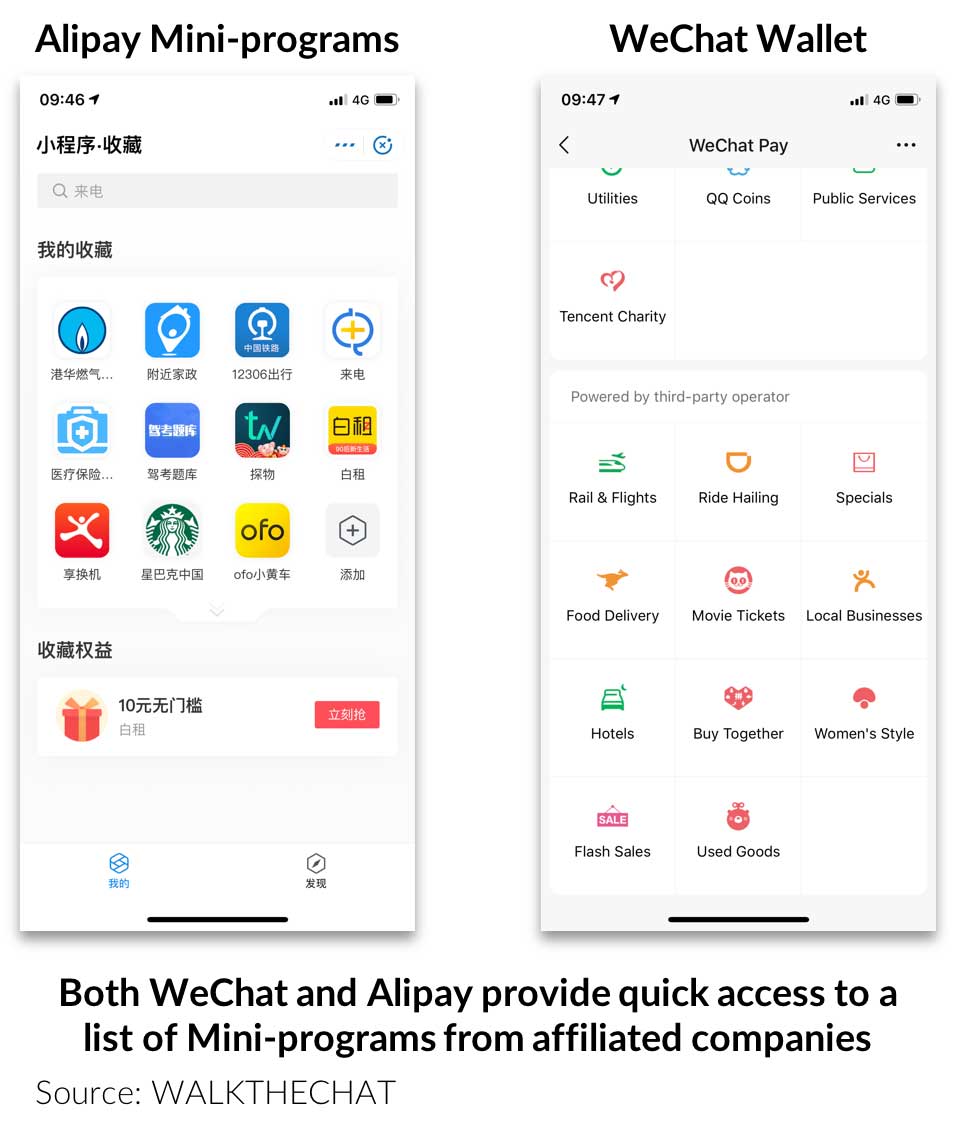If you search for “Starbucks” (“星巴克”) on Taobao you might be in for a surprise. Instead of simply seeing a link to Starbucks’ Tmall store, you will see a menu linking you to a “Starbucks Mini-program” experience within Taobao.
The search also shows 4 tabs leading to different sections of the “Mini-program”.
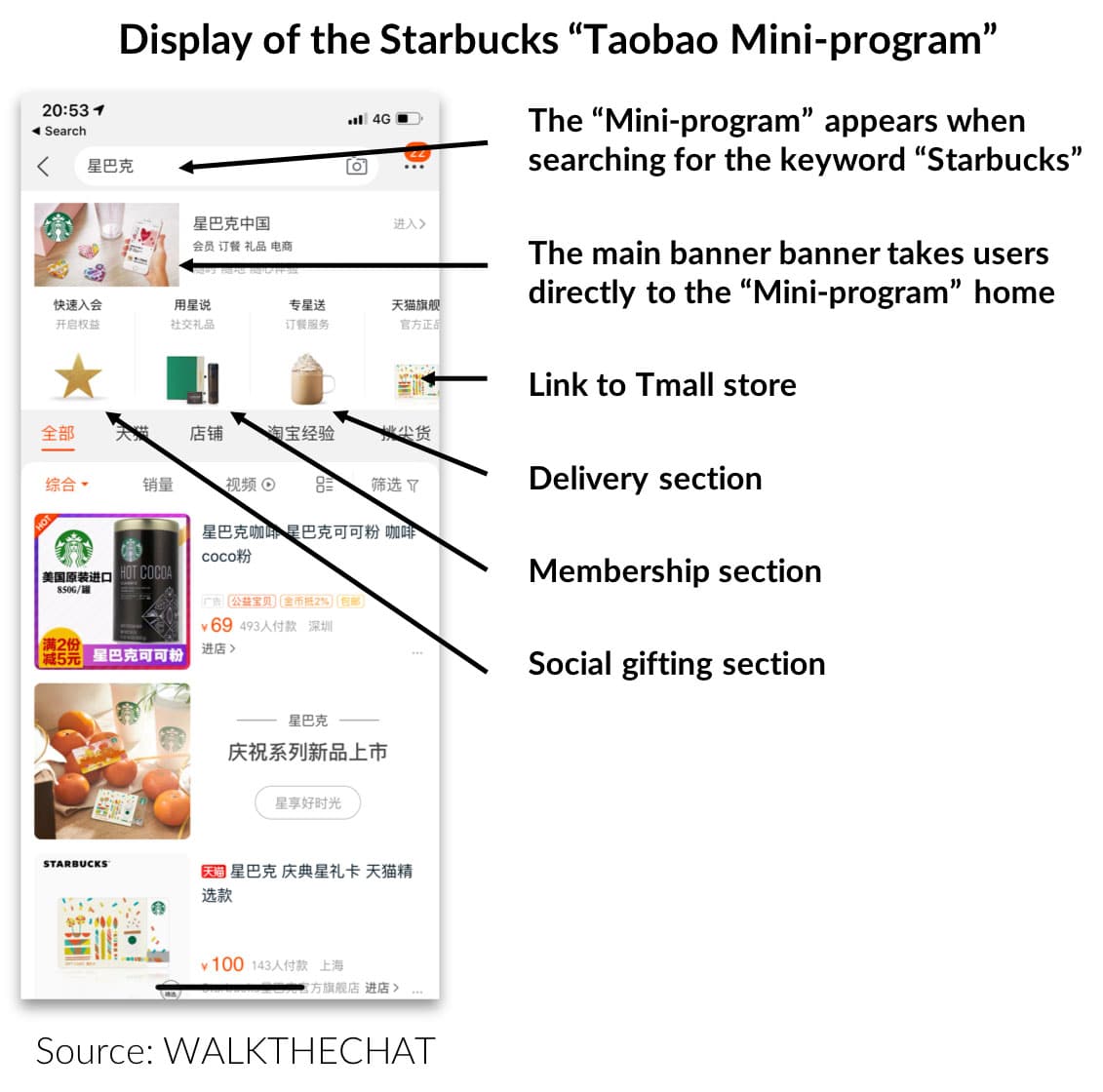
When opening the mini-App, the interface looks like… a WeChat Mini-program
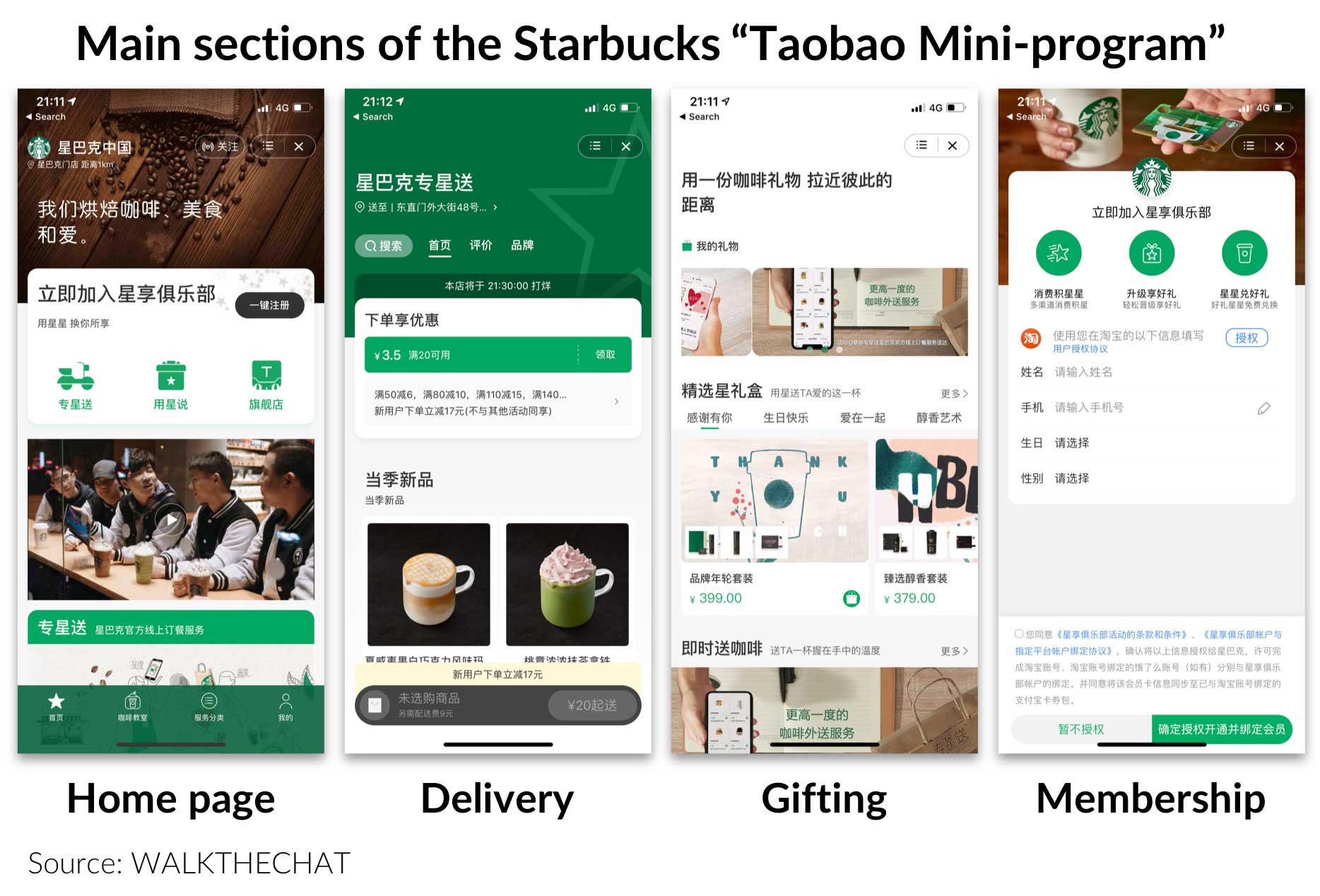
Another interesting point of Taobao Mini-programs is that they can also be accessed via the Alipay App. You can do so, among other ways, by going into the Friends => Mini Programs section of the Alipay App.
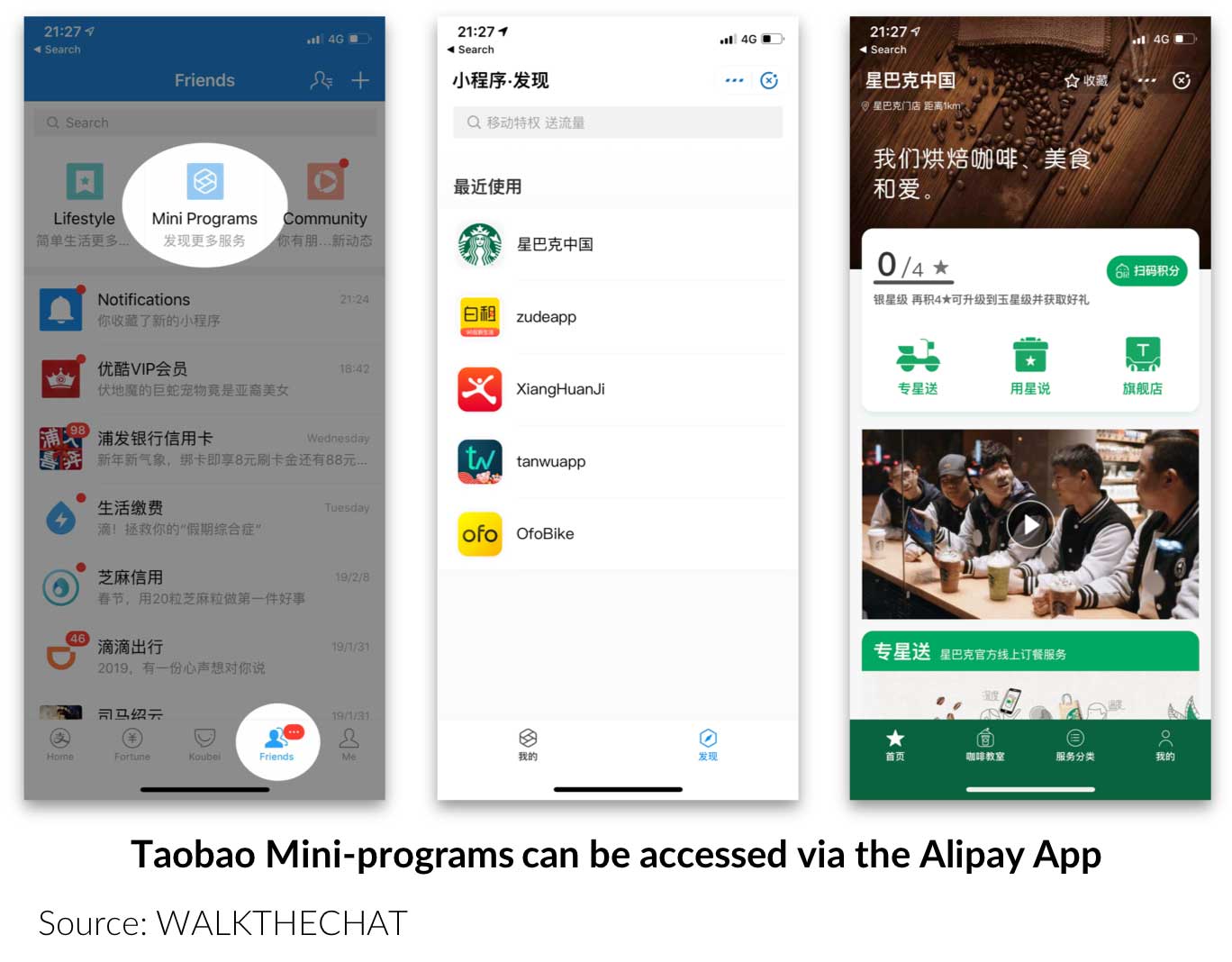
The access through Alipay gives a hint into the purpose of Taobao Mini-programs: creating service applications available across its ecosystem.
The purpose of Taobao Mini-programs
Opening up the Alibaba ecosystem to services
Alibaba has been, over the last few years, very focused on its e-commerce vertical, while Tencent has built a broader ecosystem of services.
As Alibaba diversified in more industries such as entertainment, healthcare and mobility, it needed to develop the ability to offer services beyond e-commerce to its users. Taobao Mini-programs are an opportunity to do just that.
Driving traffic to “friendly” companies
WeChat has long used its “Wallet” feature to drive traffic to companies in which Tencent had invested, such as VIP.com (唯品会) or Pinduoduo (拼多多).
That’s exactly the purpose of the Taobao Mini-programs, which provide a simple link to plenty of applications invested or supported by Alibaba such as bike sharing platform Ofo, rental platform Zude (白租) or power bank rental platform Laidian (来电).
Improving O2O integration
One of the early advantages of WeChat Mini-programs was to enable convenient Offline-to-Online integration. When in a restaurant, you can scan the mini-program on your table to easily pay for your bill, or you can use the WeChat mini-program of Mobike in order to unlock a bike in the street via WeChat.
That’s exactly the behavior leveraged by Taobao Mini-programs, with very similar functions offered via the Ofo Taobao Mini-program (although admittedly it is less than useful as Ofo is going bankrupt and most users are focusing on getting their deposit back)
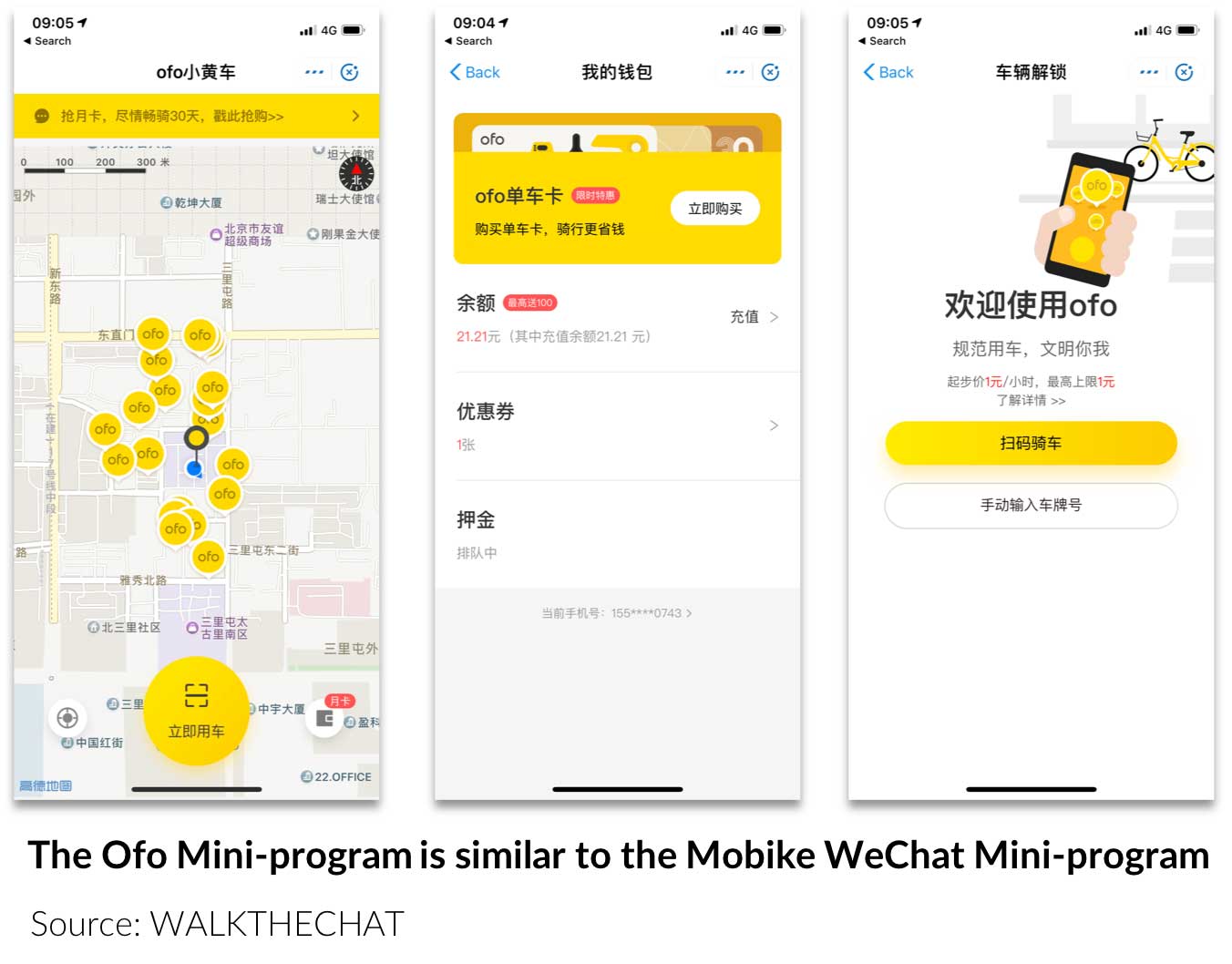
Leveraging a community of programmers
One of the benefits of WeChat Mini-programs was to leverage a community of programmers which started to build Apps on its ecosystems (actually this involvement of programmers in the WeChat ecosystem started even earlier, with a vibrant ecosystem of WeChat HTML5 store and applications existing even before the release of mini-programs).
Early 2018, Tencent already boasted 1.5 million developers registered on its platform.
Although the documentation of Taobao Mini-programs was not released yet, it is likely that Taobao will try to pull a similar feat by enabling third parties to build on top of its platform.
Do Taobao Mini-programs stand a chance?
WeChat Mini-programs already achieved a significant head start, with hundreds of millions of daily active users and millions of developers already joining the ecosystem.
However, Taobao does stand a chance. Although WeChat boasted 1.08 billion Monthly Active users on its App in Q3 2018, Alibaba quarterly reports state that “currently, Alipay and its affiliates have over 1 billion annual active users globally”.
Alibaba also benefits from nearly 700 million e-commerce users across its ecosystem.
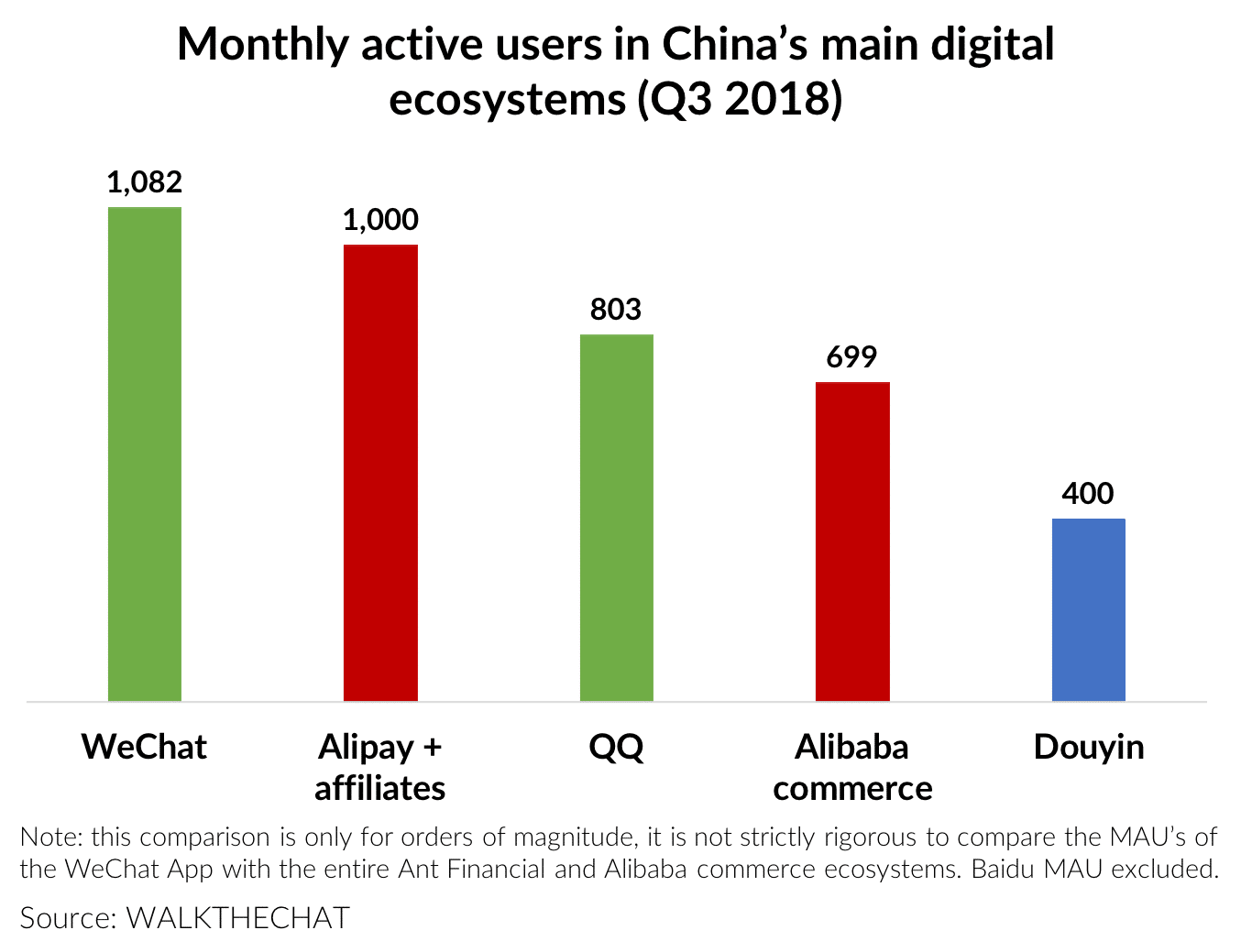
In terms of sheer users volume, Alibaba is therefore in a strong position.
Alibaba Mini Program was launched in September 2018 after a one-year testing period. By Jan 2019, Alibaba released some data about its Mini Program:
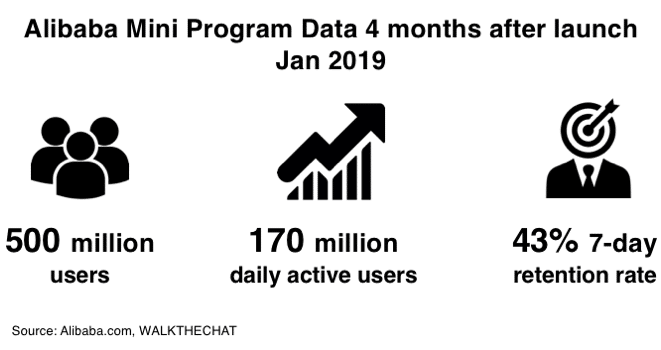
After 4 months of operation, Alibaba was able to acquire 500 million Mini Program users, and 170 million daily active users.
Comparatively, by Jan 2018, one year after WeChat Mini-programs release, WeChat announced 580k WeChat Mini Program, 170 million daily active users, and 1 million Mini Program developers.
Although Alibaba and WeChat have the same amount of daily active users, the recognition is incomparable. Most Alibaba Mini Program users are not aware of the existence of Mini Programs within Alipay, they are simply using the Alipay App and get redirected to a Mini Program.
It is also unclear why users would want to use Taobao mini-programs besides offline usage. The power of WeChat Mini-programs was linked with:
- Social integration: easy sharing with friends, for instance for Pinduoduo deals, was a core reason to use WeChat Mini-programs. That’s not something Alibaba can easily benefit from
- Content ecosystem: easy links between Key Opinion Leader campaigns and WeChat Mini-programs is a core reason for brands to develop WeChat Mini-program stores. Once again, content is not at the core of Alibaba’s ecosystem (although it does benefit from some assets in this field such as video platform Youku)
- Payment integration: a link between payment and mini-programs was another incentive to use the new Tencent technology. For instance, buying a cup of coffee with WeChat payment will take the user to a viral sharing game enabling to get free coffee. There is no such integration today with Alipay, beside the strong partnership between Alibaba and Starbucks
Conclusion
Taobao Mini-programs appear as a logical step for Alibaba to step out of its pure e-commerce positioning and move into service offerings.
The strength of Alibaba in terms of Monthly Active Users might lead to initial momentum. However, it will be challenging for Taobao to drive traffic to its Mini-programs, given the company’s weakness in content and social compared to Tencent.


